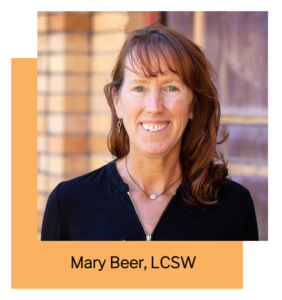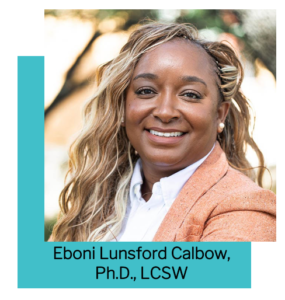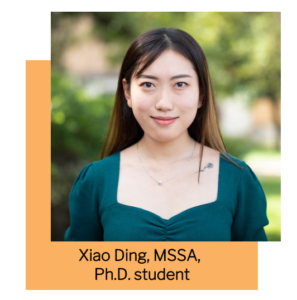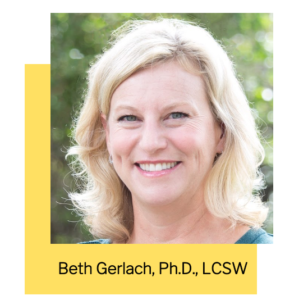Introducing The Texas School Social Work Network (TSSWN)
Social workers practicing in schools are an important part of the student support team that can include guidance counselors, nurses, school psychologists, and behavior specialists. School social workers have a unique multi-level perspective and are equipped with skills to address individual student mental health, family support and crisis intervention, while also keeping their eyes open to the systemic barriers that students face. To learn more about the importance of school social workers during COVID-19, we recommend reading this recently published policy brief.
While many social workers are practicing in Texas schools, their roles and responsibilities vary widely by position and school. In other states, the school social work profession is more defined and integrated into student support teams. As former school social workers and school social work researchers at the Steve Hicks School of Social Work, we have been approached by school social workers looking for Texas-specific guidance for practice.
Introducing, The Texas School Social Work Network (TSSWN)! By focusing on research, training and practice, TSSWN hopes to partner with school social work practitioners to support best practices and relevant research, and to develop guidance and tools that school social workers can use in their everyday practice.
Learn more about our network members, their expertise, and what excites them about this new network below.
 “As the Coordinator for the School-Based Social Work Certificate program, people from around the state reach out to inquire about participating. Currently it is only available to UT Austin Steve Hicks School of Social Work MSSW students. I am excited at the prospect of creating and offering an equivalent certificate program to professionals in the field. This will hopefully help raise the recognition of the powerful impact that school social workers have across the state.”
“As the Coordinator for the School-Based Social Work Certificate program, people from around the state reach out to inquire about participating. Currently it is only available to UT Austin Steve Hicks School of Social Work MSSW students. I am excited at the prospect of creating and offering an equivalent certificate program to professionals in the field. This will hopefully help raise the recognition of the powerful impact that school social workers have across the state.”
Prior to teaching full time at the Steve Hicks School of Social Work, Mary Beer was an adjunct professor for five years and a school social worker for sixteen years. She worked in schools in Newark and Summit, NJ and with over twenty schools in Austin ISD. In addition to school social work, she has experience with medical social work and residential treatment settings.
Professor Beer has experience working with children and youth ages 4-20 and practices primarily from a solution-focused approach. She also has experience with cognitive behavioral, motivational interviewing, sand tray, ecotherapy, and play therapies. She is a Trust-Based Relational Intervention Practitioner and Educator, and the coordinator for the School-Based Social Work Certificate Program.
Professor Beer has provided workshops on the topics of TBRI, compassion fatigue, sex education, drop-out prevention programs, school ethics, non-suicidal self injury, suicide prevention, and group-based interventions.
Professor Beer is licensed by the state of Texas as an LCSW and is a board-approved clinical supervisor. She is a member of NASW, the Council on Social Work Education and the School Social Work Association of America.
In her free time she likes to run with her dogs, hike in Colorado, and read novels.
—
 “School social workers are well positioned at the intersection of critical response to community needs; our current state of undoing racism while in a pandemic is no exception. The Texas School Social Work Network will amplify the work of generations of social workers in schools, and with the help of our community partners, lead the charge for change and increased resilience in our education system.”
“School social workers are well positioned at the intersection of critical response to community needs; our current state of undoing racism while in a pandemic is no exception. The Texas School Social Work Network will amplify the work of generations of social workers in schools, and with the help of our community partners, lead the charge for change and increased resilience in our education system.”
Eboni Lunsford Calbow, LCSW, PhD, is a clinical assistant professor in the Steve Hicks School of Social Work at The University of Texas at Austin.
Her current research and teaching interests include school social work, trauma informed care and intervention, educational equity and social justice, multidisciplinary and collaborative practice, and evidence-based interventions for children with disabilities.
Prior to teaching full time at the Steve Hicks School of Social Work, Calbow was a school social worker for almost a decade, working with over twenty school campuses in Austin ISD. She has experience working with children and adolescents ages 3-22 and is a Trust-Based Relational Intervention (TBRI) Practitioner. Her professional practice covered topics like trauma informed intervention, culturally responsive practice, drop-out prevention, sociocultural influences on academic progress, school ethics, crisis and critical incidents, non-suicidal self-injury (NSSI), and suicide prevention and intervention.
Calbow is a Licensed Clinical Social Worker and is a member of the National Association of Social Workers (NASW), along with the Council on Social Work Education (CSWE) and the Council for Exceptional Children (CEC).
—
 “School social work remains to be the major clinical task force that impacts students’ and families’ socio-emotional well-being, yet their contributions are often underappreciated. I am proud to be part of the TSSWN to offer resources and evidence-based information they need and also help the field understand the uniqueness of the Texas school social work population.”
“School social work remains to be the major clinical task force that impacts students’ and families’ socio-emotional well-being, yet their contributions are often underappreciated. I am proud to be part of the TSSWN to offer resources and evidence-based information they need and also help the field understand the uniqueness of the Texas school social work population.”
Xiao Ding is a doctoral student at The University of Texas at Austin Steve Hicks School of Social Work and the recipient of the Michael R. Daley Endowed Presidential Scholarship for Doctoral Students. Xiao earned her Master of Science in Social Administration from Case Western Reserve University in 2018, with a concentration in Mental Health, Children and Adolescents. She also holds a Bachelor of Arts degree in Broadcasting and Television Journalism from Hubei University, China. Born and raised in an underdeveloped, remote, and ethnic minority-dominant city in the northwest of mainland China, Xiao witnessed the regional disparities among ethnic and socio-economic groups in terms of access to social services and the need for change.
Xiao’s research is grounded in her past research and practice experience. She worked as a research assistant at the Begun Center for Violence Prevention Research and Education while at Case. During that time, she was involved in multiple program evaluation projects regarding positive youth development and was a co-author of several annual reports. Xiao was the lead author and poster presenter on behalf of her research team at Begun Center at the 2018 Research ShowCASE at Case. After graduation, Xiao worked as a school-based therapist in Maple Heights, Ohio to continue serving children, youth and their families through counseling and community services. As a school-based therapist, she was trained to identify at-risk children and help them redirect their trajectory through early intervention. She is particularly interested in knowing more about the influence of the ‘other than school’ environments on youths regarding their academic skills and resilience development.
Xiao’s current research focuses are 1) children and adolescents’ behavioral control and prediction; 2) the impacts and variances on youth development while being exposed to risks, childhood adversities, or a less privileged social status; 3) trauma informed practice and resilience-based care at the community level across different social environments.
Xiao is currently working with professors Cynthia Franklin on a meta-analysis concerning the common elements of Solution-focused Brief Therapy (SFBT) Interventions in community-based settings. Her ultimate goal is to develop a model that can be tailored to various populations so that SFBT interventions are readily accessible across the globe.
—
 “I am very happy to be a founding member and leader within the Texas School Social Work Network ( TSSWN) at the Texas Institute for Child and Family Wellbeing. I love school social work practice and I am excited to work with my colleagues to empower Texas school social workers through evidence base practices and research.”
“I am very happy to be a founding member and leader within the Texas School Social Work Network ( TSSWN) at the Texas Institute for Child and Family Wellbeing. I love school social work practice and I am excited to work with my colleagues to empower Texas school social workers through evidence base practices and research.”
Cynthia Franklin, Ph.D., LCSW-S, LMFT is the Stiernberg/Spencer Family Professor in Mental Health and associate dean for doctoral education in the Steve Hicks School of Social Work. Franklin also holds a courtesy appointment in the Department of Psychiatry at the Dell Medical School and faculty fellowships at the Humanities Institute and the Meadows Center for Preventing Educational Risk in the Department of Special Education.
Franklin’s career bridges clinical practice, research, teaching, and leadership. She was named one of the 100 most Influential contemporary social work faculty for the overall impact of her more than 200 publications (Journal of Social Service Research, 2019). Franklin was honored with the Gary Lee Shaffer award for academic contributions to the field of school social work and was also inducted into the American Academy of Social Work and Social Welfare. Franklin received the designation “Social Work Pioneer” from the National Association of Social Workers (NASW) for her unique dedication and commitment to improve social and human conditions. She was also a recipient of the Lifetime Achievement Award.
Trained as a family therapist, Franklin is a champion for family and strengths-based, mental health interventions. She is an internationally recognized expert on solution focused brief therapy (SFBT) and mental health in the context of schools. Her career has been devoted to advances in practice and research on SFBT with the aim of helping children, adolescents and teachers in schools.
In 2002, Franklin helped develop a solution-focused, dropout prevention program in Gonzalo Garza Independence High School in Austin, Texas. The program reduces dropout rates and helps students graduate and attend college. Garza High School’s continuous success has resulted in multiple recognitions, including the Texas Education Agency model school program and The United States Department of Education ranking as a top five dropout prevention program.
Franklin regularly serves in administrative and national leadership positions. She is the past president for the Group Advancement for Doctoral Education and the past editor-in-chief of the journal Children in Schools. For the past 7 years, she has served as editor-in-chief for the Encyclopedia of Social Work and managed the migration from a print version of the Encyclopedia to an interactive online version.
—
 “School social workers are prepared to address the many challenges faced by students, families, teachers and communities that impact academic success, and they do so with a strong commitment to social justice. This work has never been more important, and I am excited to hear from school social workers in our state to see how we can best partner and support the great work they are doing.”
“School social workers are prepared to address the many challenges faced by students, families, teachers and communities that impact academic success, and they do so with a strong commitment to social justice. This work has never been more important, and I am excited to hear from school social workers in our state to see how we can best partner and support the great work they are doing.”
Dr. Beth Gerlach is the Associate Director of the Texas Institute for Child & Family Wellbeing. She combines her research training with her clinical social work experience to evaluate approaches to serve vulnerable children and families best. Her professional interests include developing and evaluating practice and systems that can best support children and parents that have experienced trauma. These systems include schools, healthcare, child welfare and prevention of child maltreatment. She thinks exciting avenues exist in each of these systems to prevent, heal and reduce the intergenerational transmission of trauma within families.
Dr. Gerlach is a daughter of two former educators and was a school social worker before returning to the University of Texas. She is a licensed clinical social worker and has trained in the Neurosequential Model of Therapeutics (NMT) and is a Daring Way facilitator. She has taught a number of courses at the SHSSW, including the Social Work Practices in Schools class. Her research experience and interests at TXICFW . include school-based health and mental health services, prevention of child maltreatment, interdisciplinary approaches to address adverse childhood experiences, educational equity, trauma-informed care, prevention of multigenerational trauma, restorative discipline practices in schools and family relationships and parenting.
Sign up for our TSSWN newsletter listserv to stay in the know about TSSWN, get a sneak peak into upcoming Texas school social workers’ conferences, and more!
